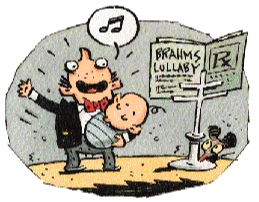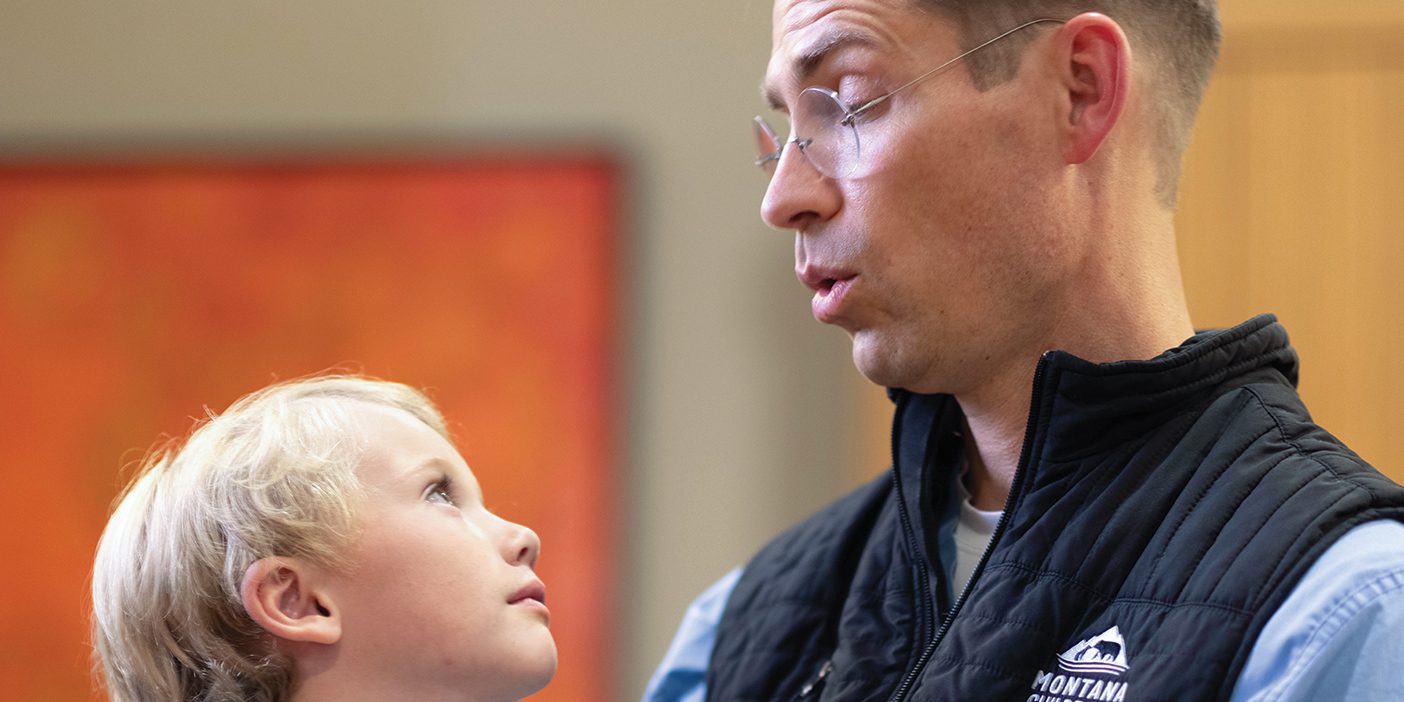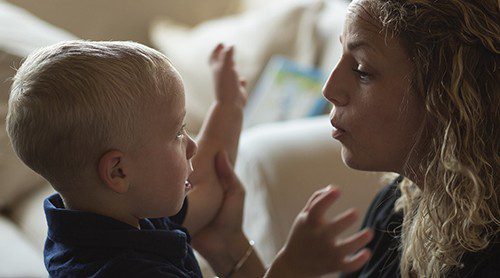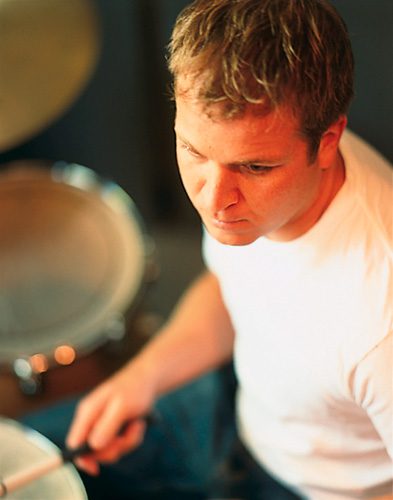Parents have always known that the strains of a lullaby can calm a fussing baby, but new research suggests that these simple melodies may also shorten hospital stays for newborn intensive-care patients. In a study conducted by BYU music professor Rosalie Rebollo Pratt, babies in a newborn intensive-care unit (NICU) showed significant improvements when they were exposed to four days of a simple music medicine regimen.
As they listened to the music, the “lullaby babies” had lower heart rates, increased oxygen saturation, and reduced stress behaviors. They also showed long-term progress and were healthy enough to leave the hospital an average of nearly three days earlier than babies in the control group.
“By some estimates, a three-day stay in the NICU can cost as much as $7,000. So we are talking about a very cost-effective way to improve the health of infants while reducing hospital costs,” says Pratt.
“It’s hard for us to believe that something as simple as music could work,” admits Pratt, but she says one reason the music is so effective is that it helps mask environmental noise, creating a more relaxing environment for fragile newborns. Previous studies have shown that environmental noise in the NICU–such as the hum of machines or the clanking of equipment–is harmful because it keeps babies from resting, and their distress movements use up needed calories.
“Music, particularly the sound of the voice, may draw the attention of premature babies away from mechanical sounds and instill a more humanizing element into the NICU, thus increasing desirable growth and overall health,” says Pratt.
In the BYU study, 33 babies were exposed to two 20-minute music sessions each day for four days. The babies’ responses were recorded on videotape, and heart and oxygen response measurements were calculated. The lullaby babies–who were closely matched to a control group of babies with similar gestational age, weight, and Apgar scores–showed consistently higher caloric intake and weight gain than their counterparts.
“The videotape replays show that when the music was played there was better caloric intake, infants quieted down, oxygen saturation increased, and distress behaviors decreased,” Pratt says.
The study also compared the infants’ responses to men’s and women’s voices singing and speaking. Pratt says the babies showed the strongest preferences for sung lullabies.
“Lullabies are very smooth, the rhythm is very even. This kind of melody has no surprises. It’s simple, sweet, even, and repetitive, and these factors produce a sedative feeling.”
Pratt was not surprised to find that babies preferred singing to speaking. However, she was surprised to find that they responded equally well to the singing voices of men and women.
“It has long been accepted that babies respond better to women’s voices, but in our study that was not the case for either boy or girl babies. There’s an old wives’ tale that’s knocked right out of the wall,” she says.
While this particular study involved hospitalized babies, Pratt believes that parents should implement home-based music programs as early as possible. Research shows that even newborn babies recognize and are comforted by their parents’ voices, so Pratt encourages parents to sing to their children, even if mom and dad aren’t virtuoso performers.
“Children respond to their parents’ voices. The baby isn’t looking for Pavarotti–it’s looking for its father’s voice,” Pratt says. “The voice may not be beautifully polished, but it is the father’s sound and that’s what is important to a child. I think that overrides everything else.”
Pratt says there is also evidence that music helps build the brain’s neural pathways and that certain types of music can help kids with Attention Deficit Disorder (ADD). While additional research is needed, arts medicine therapies are slowly gaining acceptance in the medical community, she says. One progressive hospital even hires a harpist to give daily concerts in its NICU.
The study–co-authored by master’s student Jacquelyn Coleman and medical doctors Ronald Stoddard, Dale Gerstmann, and Hans-Henning Abel–was published in the International Journal of Arts Medicine.










